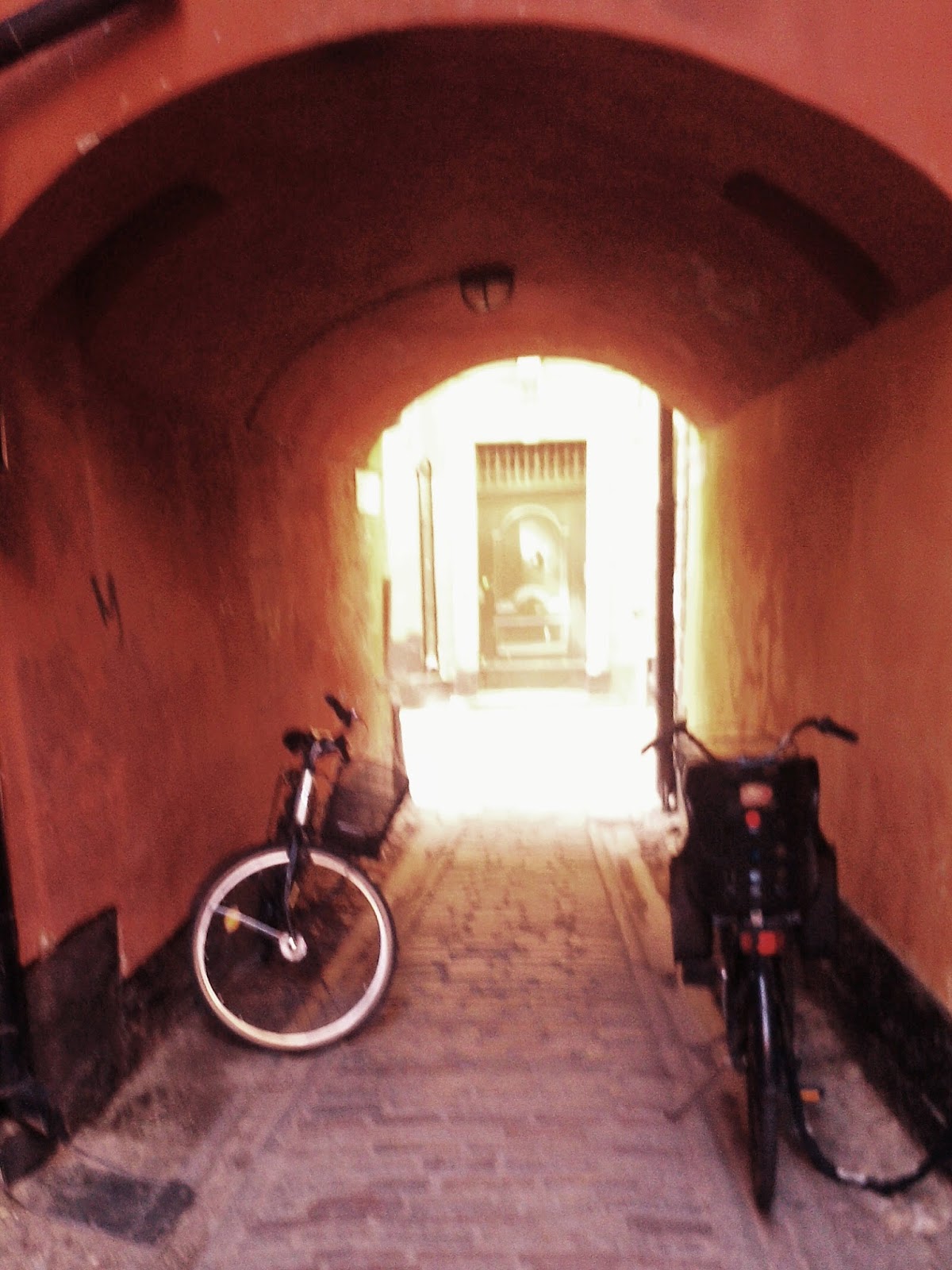I had been assured by the medical staff on board the Eurodam (the ship I cruised on for this trip) that the thing to do is wake up at 6:00am (it is as light as midday in these parts) and view the ship's approach to Stockholm. There are 27,000 islands off the coast of Sweden, so it's rather beautiful traversing the Baltic Sea through these islands, and is worth waking up to see. Many Swedish have their summer homes on these little islands, hence many Swedish own a boat of some kind.
 |
| Swedish summer homes on an island, Baltic Sea |
As I understand it, boats are big business in Sweden. Also they are to a lesser extent in Finland, but only because Finland is somewhat less populous. The first day in Stockholm was sunny, started out a bit chilly, and became quite beautiful by the afternoon. My excursion took me to the historic part of Stockholm, then to the very outer suburbs of Stockholm to an old Viking town called
Sigtuna. Lastly we attended the Vasa Museum back in Stockholm.
Historic "Old Town" Stockholm
 |
| Gamla Stan (ca. 1252), Stockholm |
 |
| Example of how narrow streets were, Stockholm |
 |
| Historic Steakhouse ;) |
 |
| Torkyrkan and Slottsbaken Obelisk, Stockholm |
 |
| Spire of the Old German Church, Stockholm |
 |
| Iron sign detail, Old Town Stockholm |
Sigtuna
Sigtuna is an old viking town established in the 900's by Eric the Victorious, a rough character that left behind many rune stones depicting his prowess as a cunning and brutal leader. The tour guide didn't read runic anymore, but assured us he wasn't leaving messages behind about how loving and progressive he was.
 |
| Sigtuna Town Hall |
 |
| Tower interior, St. Olof's cathedral ruin |
 |
| Interior, St. Olof's cathedral ruin |
 |
| Exterior and graveyard, St. Olof's cathedral ruin |
 |
| Rune stone (Eric the Victorious), Sigtuna |
 |
| Rune stone, floor, St. Olof's cathedral ruin |
 |
| Tant Bruns Kaffestuga, oldest cafe in Sweden |
 |
| Iron Dragon detail, Sigtuna Visitor's Center |
 |
| Historic Sigtuna |
I encourage you to read the history provided on the museum site, as they can be much more comprehensive. It's a fascinating relic from the 1600's. The name actually derives from The Vasen (the fascine), and refers to heraldic depictions on the Swedish royal family's coat of arms. The Fascine "is a rough bundle of brushwood or other material used for strengthening an earthen structure, or making a path across uneven or wet terrain." (wiki) The pictures from inside aren't terribly good, as the lighting was quite low, so I'll post a few only to document my presence in the museum (I also left some of my money there in the gift shop! :))
 |
| The Vasa |
 |
| Aft hull detail, The Vasa |
 |
| Gun ports, the Achilles heel of The Vasa |
Day Two, Stockholm
Per usual, I was whisked away from downtown to another well-appointed summer home for the monarchy. This one is actually lived in by current monarchs. I was told they have to get permission from the state, as the state owns their palaces now, but I think these permissions are granted decades in advance, so as to keep a pretty consistent schedule of habitation. The gorgeous weather didn't hold. We were unable to tour the gardens as it was raining too hard. This is a huge negative for me and my naturalist tendencies to go around trying to identify native flora. Oh well. I took a few exterior shots as it is a lovely property.
 |
| Drottingholm Palace |
 |
| Guard's Barracks and theater gift shop (round building), Drottingholm Palace |
 |
| Lake Malaren in front of Drottingholm Palace |
 |
| Tulips, Drottingholm Palace |
 |
| Gateway to the gardens, Drottingholm Palace |
 |
| Lake Malaren, Drottingholm Palace |



























No comments:
Post a Comment